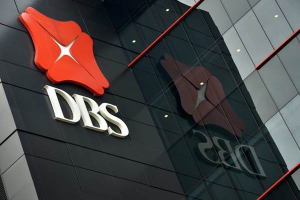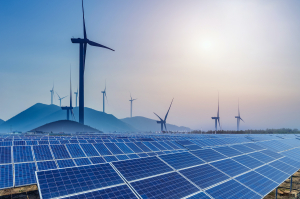DBS Bank Singapore to support Asia's energy transition
DBS Bank Singapore is committed to support energy transition in Asia, which requires significant funding in an attempt to have a strong ecosystem involving players from various industrial sectors.
Tan Su Shan, Deputy CEO of DBS Bank Singapore, highlighted the urgent global challenge of addressing climate issues. Since 1850, the world has emitted around 2,620 gigatons of carbon.
Currently, only 9 percent of the remaining Carbon Budget is left to keep global temperatures from rising beyond 1.5 degrees Celsius, as stipulated in the Paris Agreement.
"The world is making good progress. Every time I meet Indonesian conglomerates, they mention their plans to build more renewable energy," Su Shan told the "Financing Energy Transition" thematic session at the Indonesia International Sustainability Forum (ISF) 2024 in Jakarta Convention Center on Friday, September 6, 2024.
She emphasized Indonesia's potential as a "green powerhouse" with its vast mangrove resources, solar energy, and nickel reserves for electric vehicle battery production.
However, Indonesia also requires green technology, which currently sees China as the most competent provider.
Su Shan identified China, India, and Indonesia as the three major forces in Asia’s renewable energy sector.
However, Asia needs to develop its own narrative for achieving decarbonization targets, rather than following those set by Western countries.
DBS acknowledges Indonesia’s challenges in advancing its energy transition, especially with upcoming political changes. Within 45 days, there will be a transition of power from President Joko Widodo to the newly elected president, Prabowo Subianto. Su Shan stressed the importance of long-term policies to ensure the continuity of the energy transition, despite shifts in government.
The energy transition also intersects with geopolitical issues, such as the plan to build the ASEAN Grid, which spans multiple countries.
Additionally, constructing undersea cables to export energy is a technological challenge that only a few companies can handle, underscoring the need for a supportive ecosystem.
“The world must find innovative solutions − who will fund the energy transition? We are collaborating with regional and global partners to create financial instruments that can fund energy transition efforts, including the early retirement of coal-fired power plants (PLTU),” Su Shan said.
DBS is partnering with technology companies and other stakeholders to help its clients transition toward green energy. For instance, the bank is working with technology companies developing AI to generate ESG (environment, social, and governance) reports.
Additionally, DBS uses climate analytics tools to assess whether companies can achieve net-zero emissions by 2050.
“We are collaborating with Schneider and Keppel to build renewable energy,” added Su Shan.
Moreover, DBS provides solutions for companies like H&M that seek greener supply chains, particularly in countries like India.
DBS finances factories that supply H&M to install solar panels and make their operations more sustainable. In return, H&M offers contracts to these companies, securing DBS’s loans.
“This way, it’s a win-win situation when everyone works together,” she concluded.
Tag
Already have an account? Sign In
-
Start reading
Freemium
-
Monthly Subscription
30% OFF$26.03
$37.19/MonthCancel anytime
This offer is open to all new subscribers!
Subscribe now -
Yearly Subscription
33% OFF$228.13
$340.5/YearCancel anytime
This offer is open to all new subscribers!
Subscribe now





